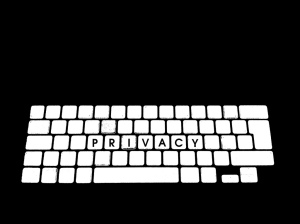In Chapter 5 of Freedom for the Thought That We Hate, author Anthony Lewis discusses the various issues Americans face when it comes to the intersection of freedom and privacy.
Justices Louis D. Brandeis and Samuel D. Warren wrote “The Right to Privacy,” an article published in 1890 by the Harvard Law Review (pg. 68). While Justices Brandeis and Warren argued that there was a “right to be let alone” in this article, privacy law is more complex than just being “let alone.”

The four main branches of privacy law are false light privacy (pg.63), meaning that a true story is portrayed in a false light; using someone’s likeness without their permission, such as casting a celebrity lookalike in an ad (pg. 69); invasion of personal space, such as eavesdropping (pg. 70); and the publication of truthful but embarrassing facts, such as outing someone as LGBTQ+ without their consent (pg. 72).
With the advent of the internet and social media, however, what was considered to be private in the early 20th century is now largely out in the open. So-called “embarrassing facts,” can now be seen by millions of people around the world in a matter of minutes, making the right to privacy much harder to guarantee. Lewis states the following about the digital age and the right to privacy: “We are in the age of exposure now: self-exposure on television, exposure of every kind of human fault or flaw by the press, tabloid and otherwise.” (pg.76). Only time will tell if privacy laws change as the digital era goes on.

Yes. Do we even have a conception anymore of a private life? I have noted over the years that students do not use the phrase “private life” anymore. They talk about a personal life (sometimes) but rarely seem to have an idea that there is or should be a separate sphere that is outside of public display and scrutiny. Surely something has been lost. Brandeis & Warren longed for a right to be let alone for they feared the assault of endless prying eyes. They did not imagine a world in which people no longer craved and in fact, feared, being let alone.
LikeLike